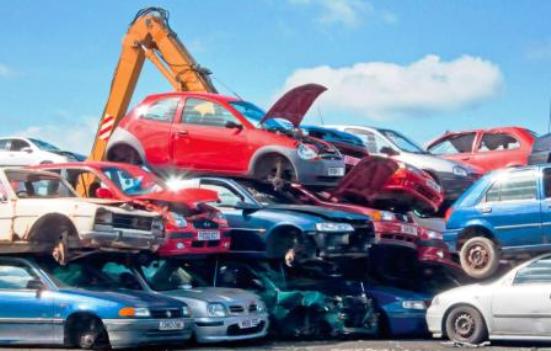By Ananya Banerjee
The pollution levels have been growing at a very high level which is resulting the quality of life of the citizens of this country. Amidst all of this the legal authorities have been passing orders and judgements for the betterment of the environment with. The National Green Tribunal (NGT) has issued guidelines in order to make vehicle scrappage process in India a preferred and a smoother process for the people. As per norm, cars older than 15 years (Petrol) and cars older than 10 years (Diesel) cannot be used. Although, they can be transferred to a new state for re-registration, it is a hassling process. A better option would be the scrapping of such vehicles. The RTO had given time till November 2019 to various stakeholders and the public to make suggestions for the guidelines. Even though the guidelines do not list down the age of vehicles which cannot be used the definition of “End of life” vehicles list down the same.
NGT’s ruling and the guidelines on vehicle scrapping:
- The aim behind these proposed changes is claimed to be a bid to promote the adoption of electric vehicles for various uses;
- The Union Ministry of Road Transport and Highways (MoRTH) has recently released the ‘Draft Guidelines for Setting up, Authorisation and Operation of Authorised Vehicle Scrapping Facility (AVSF).’
- These guidelines are for establishing vehicle scrapping units only. However, currently, there are neither any fiscal incentives nor stringent regulatory requirements which would force vehicle owners to dispose-off old vehicles.
- The guidelines apply to vehicle owners, automobile collection centres, existing automobile scrapping and recycling facilities and recyclers of all types of automotive waste products. The guidelines provide granular details on the land requirements, criteria for scrapping of vehicles, scrapping procedures, required audits, certificates and finances.
- The National Green Tribunal (NGT) noted that the number of ‘end of life vehicles’ will be over 21 million by 2025. Approximately nine million vehicles, of which 75% are two-wheelers, will be due for scrapping by next year, the NGT noted.
- Currently, this process is only voluntary.
- Further, the government can allow for exemption of additional fees such as road tax and registration fees, for all new vehicles purchased against a “certificate of vehicle scrapping” as discussed in these guidelines. The government is also looking at these scrapping centres to create employment in the country, with each centre requiring around 25 people
Car scrapping in India hasn’t been an organised activity in India. Due to NGT’s ruling which banned cars older than 15 years from being used, the aim is to have an organised structure for car scrapping. There will no re- registration for such vehicles by the RTO. Until before there wasn’t any uniform policy but in 2016 The NGT asked the Union Ministry to come up with a Vehicle Scrapping policy. Car owners have the option to sell or transfer their vehicles to a neighbouring state before their Registration Certificate (RC) expires. It is important that this is done before the expiry of the RC, as the RTO will not renew the RC after the car completes 15 years. When a car is transferred to another state, it will have to be re-registered at the new RTO, and this registration has to be updated in the records of the old RTO. Otherwise, there is always a risk of the car being used for illegal activities. Car scrapping is an option in front of a car owner who is not keen on transferring the vehicle to another state.
There are also various benefits for the citizens if they engage in scrapping of their vehicles such as fair value for the scrapped vehicle, Half the excise duty and road tax for a replacement vehicle and even discounts from auto manufacturers. It is estimated that about 15% of the cost of purchase of the new vehicle can be brought down by submitting a certificate to the auto manufacturer that a person will get at the vehicle scrapping centre.
The upcoming Policy:
There are various economic and environmental pros of vehicle scrapping. The recycling of vehicles will not only boost the demand of new vehicles in automobile industry but also significantly curb the pollution levels. In the present scenario of Covid-19 it is said the ‘Vehicle Scrappage’ policy will be a boon for the industry and the economy which is currently reeling from the pandemic’s scenario.
The vehicle scrappage policy is awaiting its final clearance according to Mr. Nitin Gadkari. In the simplest terms vehicle scrappage policy takes aim at the old vehicles, namely older than 15 years to be scrapped and recycled in the proper allotted centres and for this, various monetary benefits have been listed. It is even said that the steel from the recycled vehicles can also be used in the manufacturing of new vehicles. The process could be of this manner that the various parts may be removed from the vehicles before scrapping them and recycling them.
References:
https://www.mondaq.com/india/rail-road-cycling/875768/rto-rules-for-car-scrapping-in-delhi-ncr

